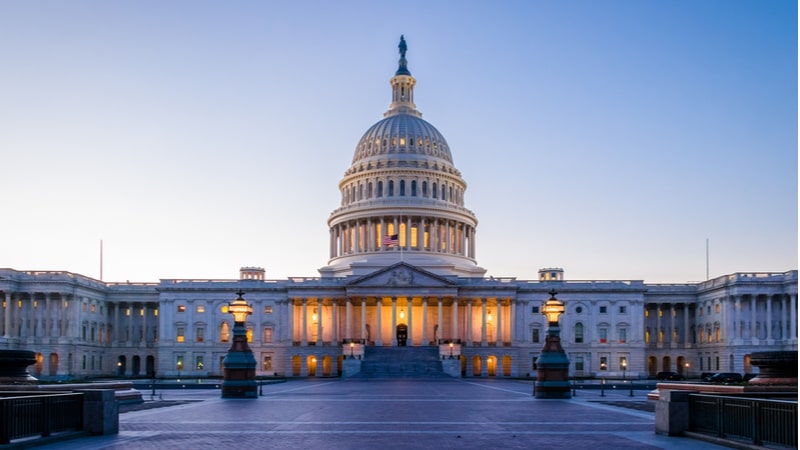
Bipartisan legislation introduced in the House last week would direct the Department of Justice (DoJ) to create a public-facing Federal database that shares information on human trafficking in the United States.
The National Human Trafficking Database Act – introduced on Oct. 22 by Reps. Kevin Kiley, R-Calif., Harriet Hageman R-Wyo., Yadira Caraveo, D-Colo., and Hank Johnson, D-Ga. – would require DoJ to provide the database on its website within 18 months of the bill’s enactment.
Using data from law enforcement agencies across the U.S. to show the “presence and prevalence” of sex trafficking, the database would provide information on a county-by-county basis on local anti-trafficking organizations and the number of trafficking prosecutions.
“This common sense effort will streamline processes by creating a national database, provide law enforcement agencies with the tools they need to track and combat human trafficking more effectively, and ensure that survivors are protected and supported,” said Rep. Caraveo in a statement.
Funding grants provided by the law would be awarded to state law enforcement agencies who submit data for the database.
Information that would be featured includes the number of human traffickers and trafficking survivors, and aggregated and anonymized data from state hotlines, the National Human Trafficking Hotline, and state children’s services agencies. Data from the Bureau of Indian Affairs’ Missing and Murdered Unit would also be included.
“For far too long, human trafficking has been prevalent across our country and especially on tribal lands,” said Rep. Hageman in a statement. “The establishment of a human trafficking database will provide law enforcement with the tools needed to track movements, determine patterns that could expedite victim recovery, to more quickly catch perpetrators, and spotlight any challenges with prosecutions.”
In 2022, the Department of Homeland Security assisted 765 human trafficking victims and made 3,655 trafficking-related arrests. The National Human Trafficking Hotline said there were 16,999 victims involved in 9,619 cases of trafficking in the U.S. and its territories in 2023.
Data on criminal activity “known to be correlated with human trafficking” – including drug distribution, sexual assault, and gang violence – would also be required for organizations receiving grant funding under the proposed law.
Data displayed would show the top ten counties with the highest and lowest rates of human trafficking within a state. Those with fewer than 20 counties would rank county’s rates highest to lowest.
The act is a companion to legislation introduced earlier this summer by Sens. Marsha Blackburn, R-Tenn., and Amy Klobuchar, D-Minn., with the Senate bill looking to establish the database on the FBI’s website.
